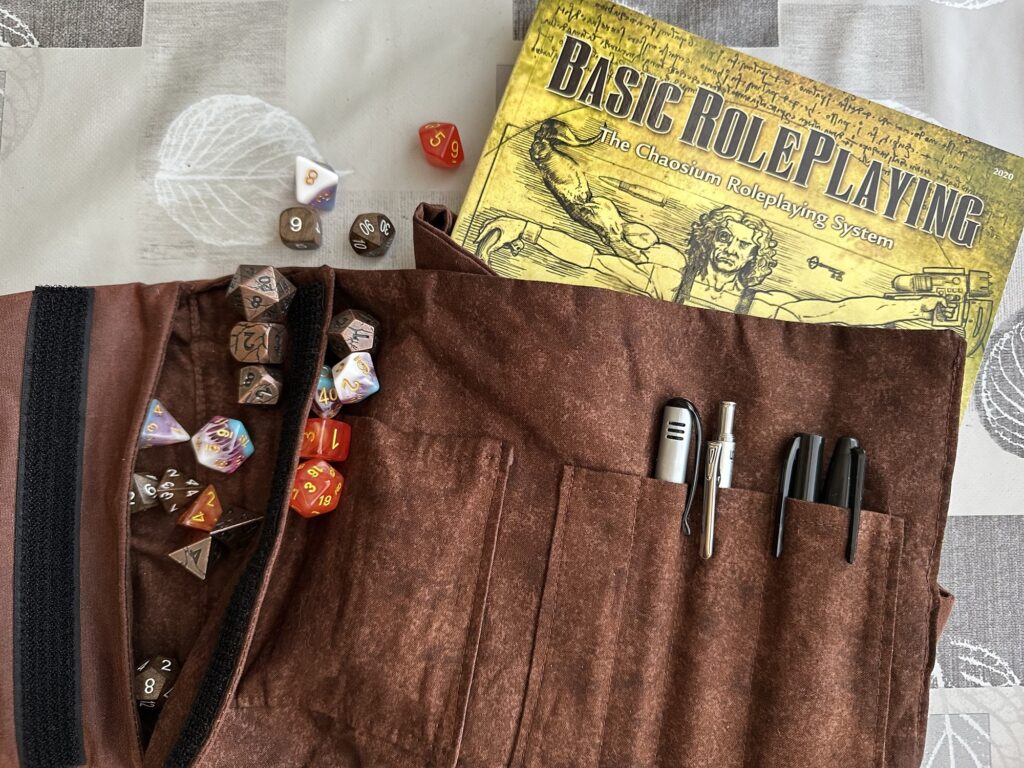On TTRPG Reviews and Actual Plays
My friends over at the Titterpigs podcast did a recent episode on “played vs unplayed reviews”, and in a sort of interesting synchronicity, the Modern Mythos podcast just released an episode on actual plays. It’s interesting because I see all three types of content as being on the same scale of “game prep”. Let me explain.

As the joke goes, “buying TTRPG books and playing TTRPG books are two entirely different hobbies”. That’s more or less how I think about unplayed vs played reviews. “Unplayed reviews” (aka “book reviews”) tell me if the book is good. “Played reviews” (or more simply “play reviews”) tell me how it went when someone tried to play it. Actual plays offer a variation of the latter and show me how it went.
Book Reviews
I generally look for book reviews if I’m on the fence about buying a particular rulebook or supplement. It tells me a bit more about what the game is about (or, at least, what it claims it’s about), what I’ll find in the book, what it looks like, a general overview of the rules, etc.
Sometimes, a good review even highlights some element of the game that I might have missed even if I flipped through the book. This helps make the decision to buy the book or not. At this point, I don’t need to know if the game plays well: I just need to know if I’ll even enjoy reading the book before I even get it to the table.
Play Reviews
Play reviews, for me, are most useful after I’ve already bought the book, and now contemplating running it. Good play reviews offer insight that a book review generally cannot: things to watch out for, possible changes and additions, actual problems and solutions. It happened a few times for instance that a play review included how some particular NPCs were portrayed by the gamemaster, or how some encounter or scene was introduced, and I just lifted that idea wholesale for my own game’s prep.
The reason I don’t pay too much attention to play reviews before buying a book is because, in my opinion, they are to be taken with a lot more grains of salt than book reviews. So many factors go into a play session that it’s hard to separate what can be attributed to the rulebook or scenario itself, compared to the mood of the players, the inspiration of the gamemaster, or the quality of the snacks. Good play reviewers have the skills to put things into perspective, but many equate “our session didn’t go well” to “the game is bad” without much thought. A book review can’t fall into this trap.
Actual Plays
The last bit, actual plays, is for me either for extra prep (such as getting more ideas of how to run the game or handle a particular scene in a scenario), or for figuring out how something is supposed to work (especially with systems that are unusual to me). For the latter, I especially look for designers running their own game, which in a couple cases, has been illuminating.

The whole “played vs unplayed reviews” debate originally comes from the worst parts of the internet, where some misguided people somehow think you shouldn’t write a review if you haven’t played the game… of course, that’s absolutely ludicrous. A campaign like Masks of Nyarlathotep wouldn’t have any reviews until, what, a year after its release? Good luck, Chaosium!
However I do see a point for labelling reviews a bit more clearly as “book review” vs “play review” (or a bit of both), especially since I use them for different purposes.